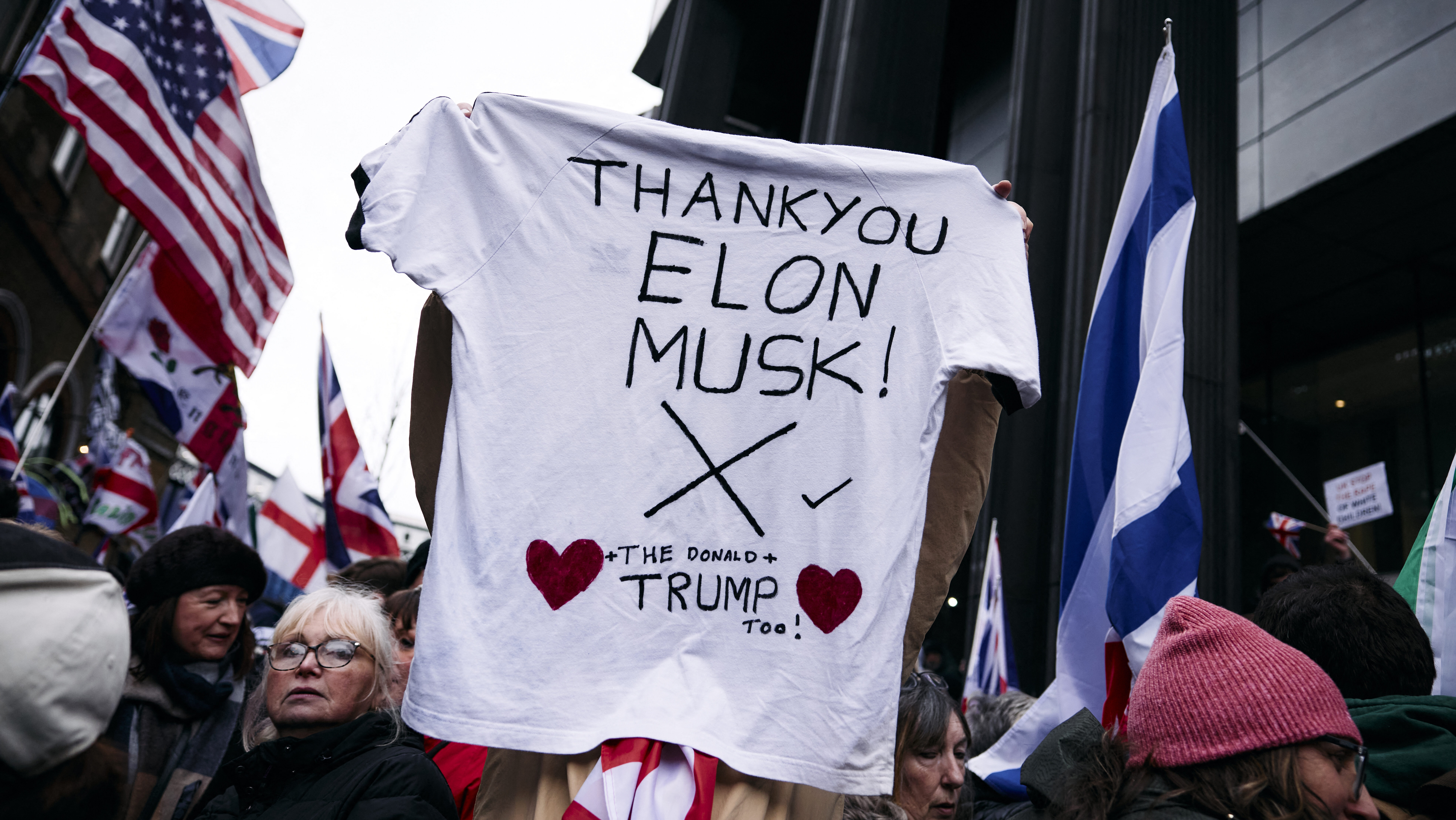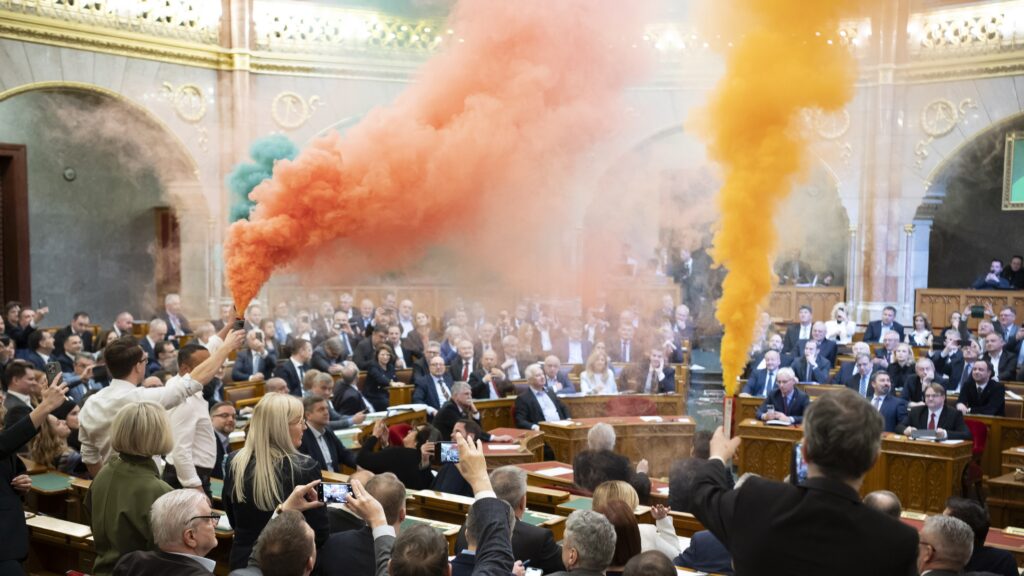Elon Musk has set his sights on the National Endowment for Democracy (NED), and, as demonstrated by the case of Germany’s early elections and the right-wing, anti-immigration party Alternative für Deutschland (AfD), when the world’s richest man raises an issue, it often becomes an issue of broader political discourse.
‘NED is a SCAM’, Musk wrote, who is also co-chair of the Department for Government Efficiency (DOGE), in a post on Sunday, referring to the NGO established by the US government in 1983. A few hours earlier, in another post, he had stated, ‘NED is RIFE with CORRUPTION,’ inviting users to reply with a list of ‘evil’ actions linked to the organization.
Elon Musk on X (formerly Twitter): “NED is a SCAM https://t.co/YmNO4NGMjS / X”
NED is a SCAM https://t.co/YmNO4NGMjS
What Is NED?
But what exactly is the National Endowment for Democracy (NED), and how did it end up on Musk’s to-do list? To answer this, we must go back to 1983, when the US Congress, as part of the State Department Authorization Act (H.R. 2915), decided to establish a bipartisan, private, non-profit corporation that would later become known as the National Endowment for Democracy.
NED’s initial purpose was clear: to foster the infrastructure of democracy—such as a free press, trade unions, political parties, and universities—in Eastern Europe, which at the time was under Soviet dictatorship. The organization was a key element of US President Ronald Reagan’s controversial Project Democracy, a series of initiatives designed to ‘export the American way of governance’ while countering socialist regimes. In short, NED became a tool of US influence, intervening in politically hostile countries to promote regime change.
However, after the democratic transitions in Eastern Europe, NED’s purpose—and the moral justification for its existence—became less obvious. As the shadow of Soviet oppression faded across Europe, and the globalist progressive ‘deep-state’ became increasingly embedded in Washington’s governmental structures, it is becoming more apparent that NED functions as a political weapon of that ruling elite.
‘A lot of what we do today was done covertly twenty-five years ago by the CIA’
While during the Cold War, its activities were framed as part of the fight against communism, today many view the organization as an extension of the CIA, facilitating regime change not only in adversarial states but also in allied nations. As Allen Weinstein, a noted historian and one of NED’s founders, admitted in 1991: ‘A lot of what we do today was done covertly twenty-five years ago by the CIA.’
Closely cooperating with the US Agency for International Development (USAID)—the federal agency responsible for allocating most of US foreign assistance—, NED operates within the same progressive network and employs similar methods. These include funding grants and projects for media outlets that claim to be independent yet promote a progressive agenda, supporting political movements aligned with this ideology, and financing reports aimed at discrediting and marginalizing political opponents of the progressive agenda. It is therefore unsurprising that many institutions and media outlets supported or created by NED—such as the Journal of Democracy—maintain close ties with Hungarian-born American billionaire George Soros and his Open Society Foundations (OSF).
The Regime Change Machine
NED’s activities have frequently faced criticism from abroad. China’s government, for instance, has sanctioned NED in 2019 for allegedly meddling in elections in Hong Kong and has presented a detailed indictment of its operations on behalf of the US government. Similar accusations have been made elsewhere; one article examining NED’s activities in Haiti described the organization as a ‘soft-power arm of the CIA’.
In response to Musk’s post, Chairman of the Georgian Parliament Shalva Papuashvili shared a lengthy statement detailing how NED allegedly interfered in Georgian politics by funding the supposedly ‘independent’ TV company Pirveli under the pretext of promoting media freedom and transparency.
Shalva Papuashvili 🇬🇪 on X (formerly Twitter): “Since, finally, the NED issue is being raised in US domestic politics, we have to remember how and who from NED has been trying to mess things up in Georgia. In 2020 and 2021, NED directly meddled in Georgian politics through funding supposedly “independent” TV company Pirveli,… pic.twitter.com/PKWkJMB6yz / X”
Since, finally, the NED issue is being raised in US domestic politics, we have to remember how and who from NED has been trying to mess things up in Georgia. In 2020 and 2021, NED directly meddled in Georgian politics through funding supposedly “independent” TV company Pirveli,… pic.twitter.com/PKWkJMB6yz
‘However, this company was owned and operated by the radical political party Lelo and oligarch Khazaradze, and its objective was to overthrow the democratically elected government of Georgia,’ he explained. Papuashvili also noted that during last year’s anti-government protests in Tbilisi, NED President Damon Wilson personally addressed demonstrators in the streets.
Additionally, in the summer of 2024, several media outlets reported that NED was involved in the anti-government protests in Serbia, alleging that the organization was laying the groundwork for a colour revolution.
NED in Hungary
Those familiar with Hungarian politics are already aware of NED and its involvement in foreign affairs. During the 2022 parliamentary elections, millions of dollars in US funding were channelled into the Hungarian opposition’s campaign through the US-based NGO Action for Democracy (AD). A subsequent intelligence investigation revealed that AD had several links to NED.
NED ceased its active operations in Hungary in the late 1990s, once the country’s accession to NATO became certain. However, in 2014 the organization’s leadership determined that the political situation in Hungary had become concerning enough to warrant reconsidering its activities in the country. In addition to its controversial links to AD, NED also provided financial support for one of Hungary’s most influential government-critical media networks, Partizán, specifically for its 2022 election roadshow. Journal of Democracy, established by NED, frequently publishes articles criticizing Hungarian Prime Minister Viktor Orbán’s government, while describing Hungary as anti-democratic.
An Undemocratic Den of Never Trumpers
Beyond pledging to end unnecessary US meddling in allied countries funded by taxpayers’ money, Donald Trump and his administration—including Musk—have additional reasons for addressing the controversies surrounding NED. One of these is that, despite its original establishment as a bipartisan organization, NED is now packed with Never Trumpers, progressives, and Democrats. Musk’s recent criticism also stems from allegations that Senator Todd Young (R-IN) is unwilling to confirm Tulsi Gabbard as Director of National Intelligence—Young was recently appointed to NED’s Board of Directors.
Elon Musk on X (formerly Twitter): "Extremely concerning. NED is RIFE with CORRUPTION!!What is going on here? @SenToddYoung https://t.co/murz7mLYGC / X"
Extremely concerning. NED is RIFE with CORRUPTION!!What is going on here? @SenToddYoung https://t.co/murz7mLYGC
NED and its network are deeply embedded within the American progressive establishment, featuring figures such as Victoria Nuland, former Undersecretary of State for Political Affairs, who is widely accused of playing a key role in Ukraine’s Euromaidan revolution in 2014—an event often cited as a catalyst for the ongoing war. There is Anne Applebaum, who recently published a book portraying Donald Trump as an ‘authoritarian’ figure. And the list goes on with other prominent individuals from Democratic circles.
Another key aspect of Trump’s campaign is reducing government bureaucracy and spending while improving efficiency. To achieve this, he established the Department for Government Efficiency (DOGE), led by Elon Musk and Vivek Ramaswamy. Although NED is an NGO, it relies entirely on federal funding. Moreover, as Tim Meisburger of the Heritage Foundation argues in his analysis of NED’s oversight and necessary reforms, the organization duplicates functions already performed by existing government agencies and departments—meaning it is both costly to US taxpayers and effectively redundant, aside from serving as a tool for foreign interference. NED can be shut down simply by eliminating its congressional appropriation, forcing it to either close or seek private donors to fund its operations. Trump proposed this in 2018, though his efforts were ultimately unsuccessful at the time.
These are just some of the reasons to put an end to NED’s operations—there are many more. The organization has been accused of suppressing right-wing voices and media and is considered part of the so-called ‘censorship industrial complex’. Its finances and reports are opaque and contradictory, among other criticisms. Musk’s DOGE could play a crucial role in addressing these issues—just as we currently observe in the case of USAID—, and with that in mind, there is hope that this time they will not encounter the same obstacles as in 2018.
Related articles:








